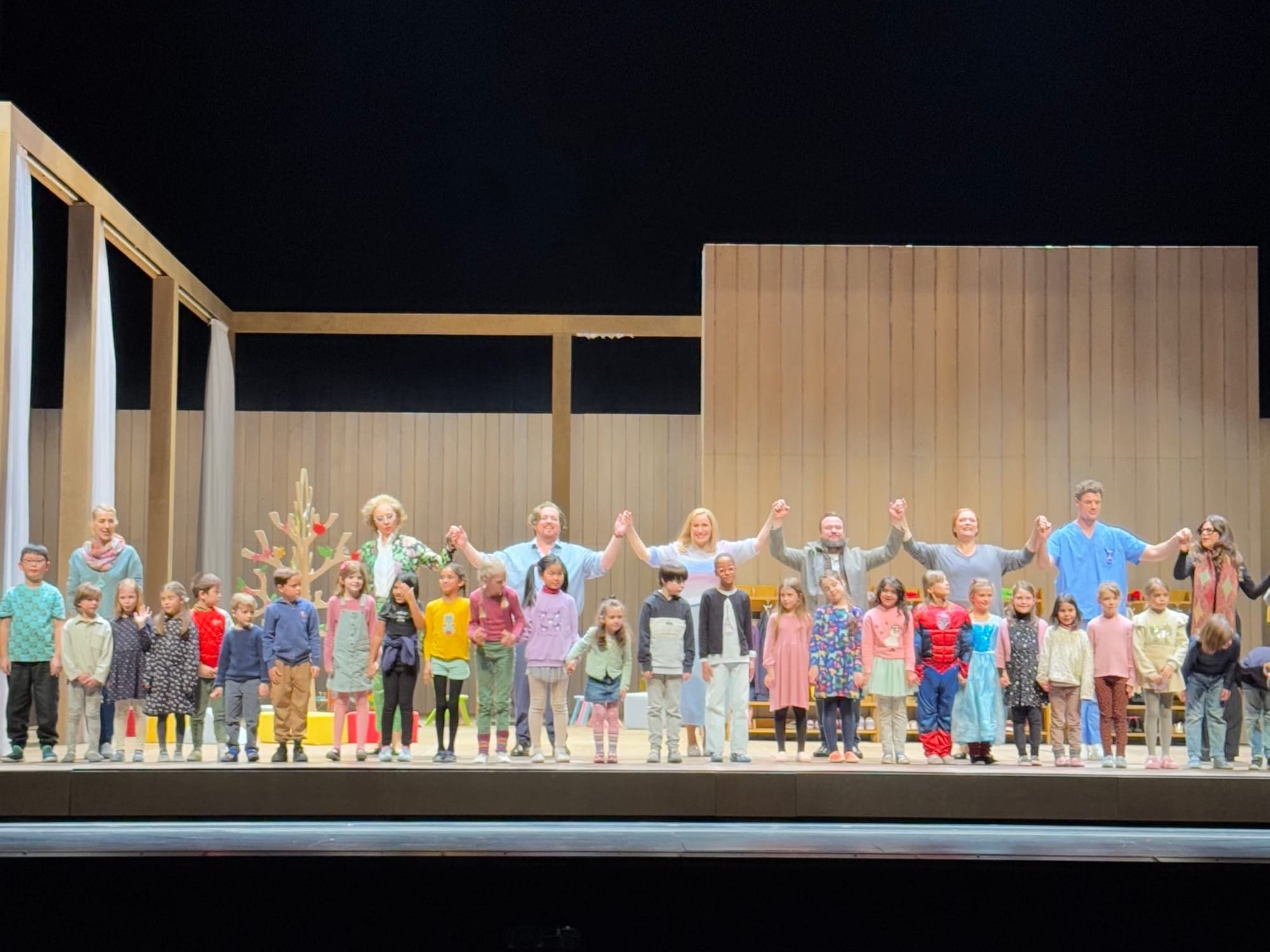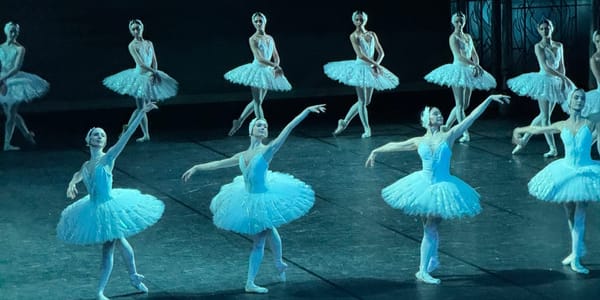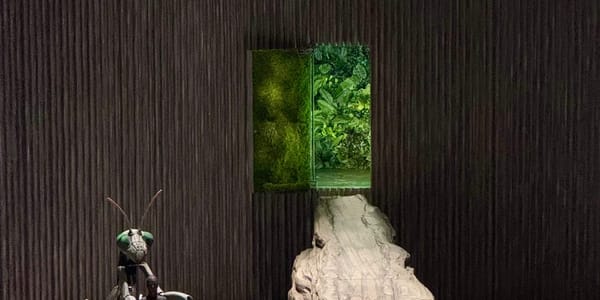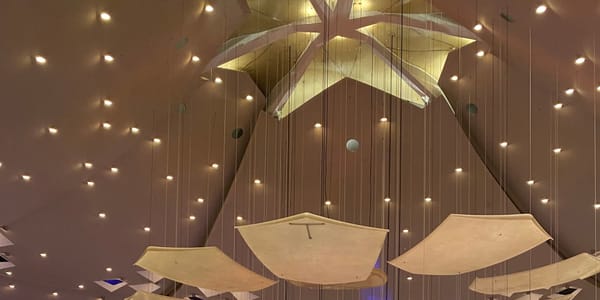Die Frau ohne Schatten at Deutsche Oper Berlin
By stripping away the fairy tale, Kratzer reveals something far more human: the complexities of relationships, the weight of expectation, and the courage it takes to carve one’s own path.
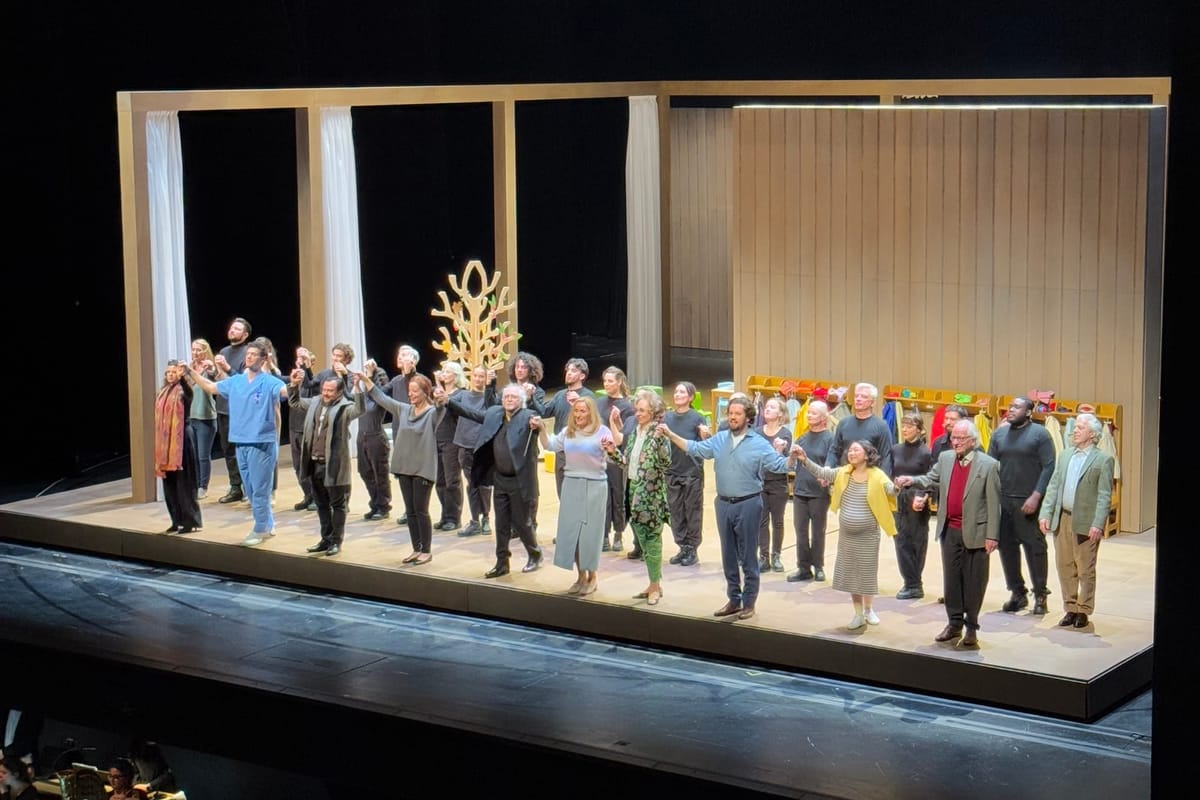
⭐️⭐️⭐️⭐️/4
🎭 Die Frau ohne Schatten
🎶 Richard Strauss
💭 Tobias Kratzer, 2025
🏛️ Deutsche Oper Berlin
🗓️ 02./05./08.02.2025
“DOCH WEICH ICH NICHT, MEIN PLATZ IST HIER IN DIESER WELT”
Rarely has an opera production impacted me as profoundly as DIE FRAU OHNE SCHATTEN at Deutsche Oper Berlin. I saw this production three times in one week—something I have never done before—because I simply could not get the music or plot out of my head. What struck me most was how seamlessly Kratzer transforms the opera’s fairytale narrative, stripping away its supernatural elements and delivering a strikingly contemporary story. The result is a production that feels deeply relevant, inviting the audience to project their own experiences onto its themes of parenthood, autonomy, and societal expectations.
Kratzer reinterprets the opera’s mystical world into a grounded, almost mundane reality: two couples struggle with relationship conflicts that feel all too familiar. The Kaiserin and Kaiser face mounting pressure from her parents to have children despite their struggles with infertility, while the Färber and Färberin are trapped in an unhappy marriage—he longs for children, she does not. Their fates become entangled when the Kaiserin, under the influence of her manipulative mother (the Amme), considers the Färberin as a potential surrogate. What was once a tale of magic and shadows becomes a brutally honest meditation on reproductive autonomy, the pressures of tradition, and the evolving landscape of relationships.
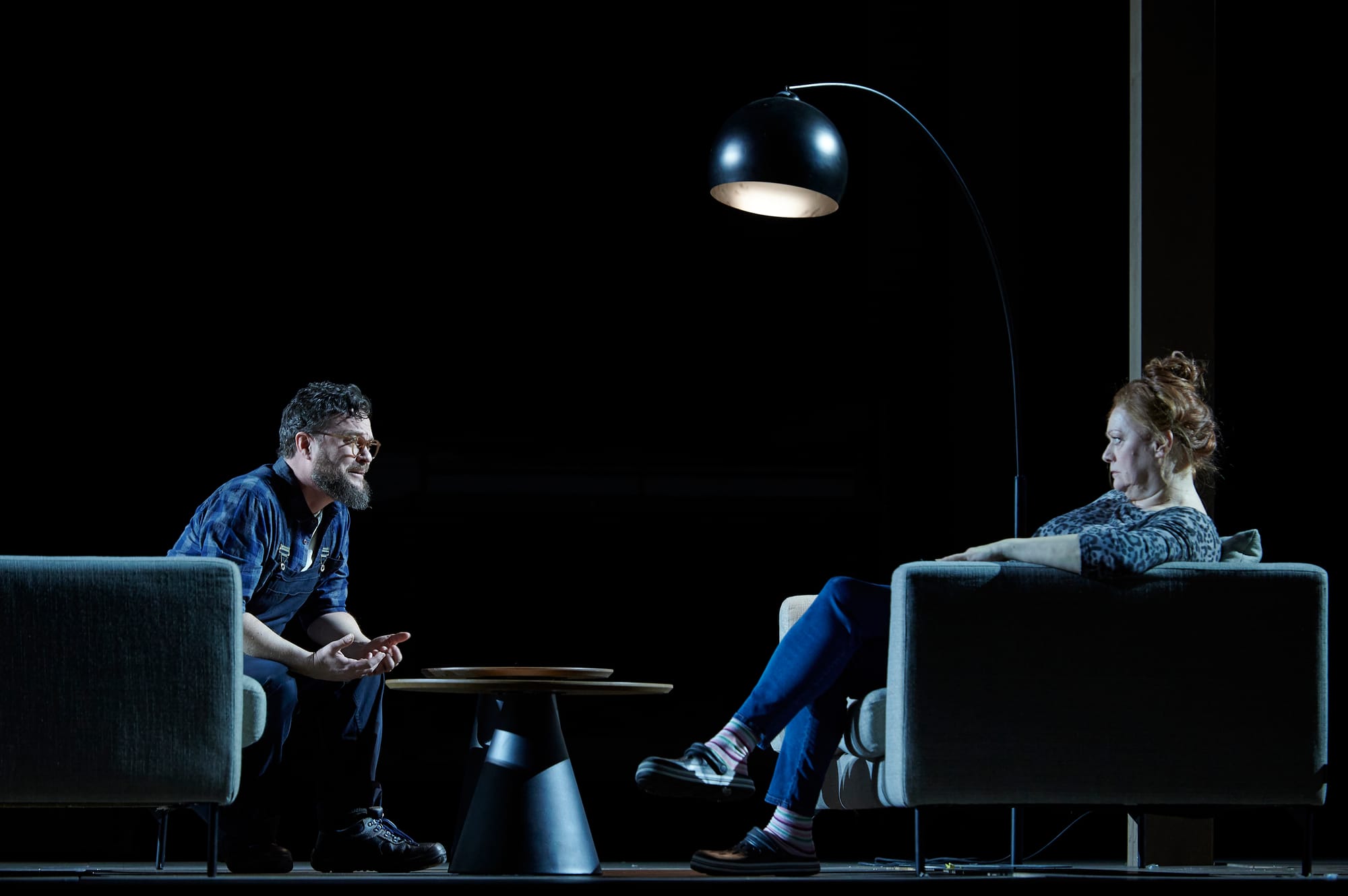
At its core, the production argues that happiness often requires breaking away from social convention. Each couple must find their own way forward, even if their choices challenge traditional narratives of love and family. For the Kaiserin, this means standing up to her overbearing parents and rejecting the expectation that she must become a mother. For the Färberin, it means acknowledging that she and her husband want different things—and ultimately choosing divorce. These are not tragic endings but liberating ones, emphasizing that relationships should not be sustained at the cost of personal fulfillment.
The production’s brilliance lies in the details: small yet striking choices that make its vision feel not just believable, but deeply affecting. So much so, that at times I was dumbstruck at how well this modern storytelling is woven into the century-old dialogue, expressly with its origins as a supernatural fairytale. A lot of these details are small creative choices that resulted in many a chuckle in the audience: frozen fish fingers instead of magically cooked fish, a UPS delivery man instead of Keikobad’s messenger, a Schlager TV show in place of singing night watchers. Beyond these countless moments worth analyzing, four important scenes stand out as particularly powerful, even weeks later:
- Instead of a mystical cavern filled with the voices of unborn children, the Färber couple’s struggles unfold in a brilliantly staged couples’ therapy session, full of actual couples’ counseling monikers that left not a single doubt about what was happening onstage. The scene ends unresolved, with the couple storming off in opposite directions—painfully familiar to anyone who has witnessed a relationship ending in real time, or who might have experience with couples’ therapy themselves.
- In place of the Kaiserin encountering her petrified husband, the Amme leads her into a fertility clinic to kidnap a baby, after the Färberin’s IVF treatment ends unsuccessfully. A fleeting but powerful moment shows a same-sex couple picking up their newborn—an authentic, unforced representation of queer parenthood that in its realness remains all too rare on the grand opera stage (especially considering that queer people are the rock on which opera is built, in audience and talent alike).
- The emotional climax of the production comes in Act III with a surreal yet devastating baby shower, where the Kaiserin—who isn’t pregnant in the first place—is forced to open gifts for a nonexistent child. As the violin solo swells, the moment encapsulates the suffocating social pressure placed on women to bear children, regardless of their personal desires. It is here that she finally takes a stand against her patriarchal father, defiantly declaring, “ICH. WILL. NICHT!”—a turning point that frees her and the Kaiser from the weight of expectation.
- The final scene departs from the opera’s original conclusion in a profoundly moving way. Instead of a mystical reconciliation, all four protagonists step away from the stage, as if taking a moment to reflect. Then, as the triumphant final quartet concludes, the stage transforms into a kindergarten filled with children playing, reading, and crafting. Some are picked up by parents—including Barak, who has, in the end, fulfilled his wish to be a father. The message is clear: even in a world where relationships don’t always follow tradition, children are still loved, nurtured, and cherished, and kindergartens are still packed. (I cried every single one of the three times I saw this and still get moved when listening to the finale).
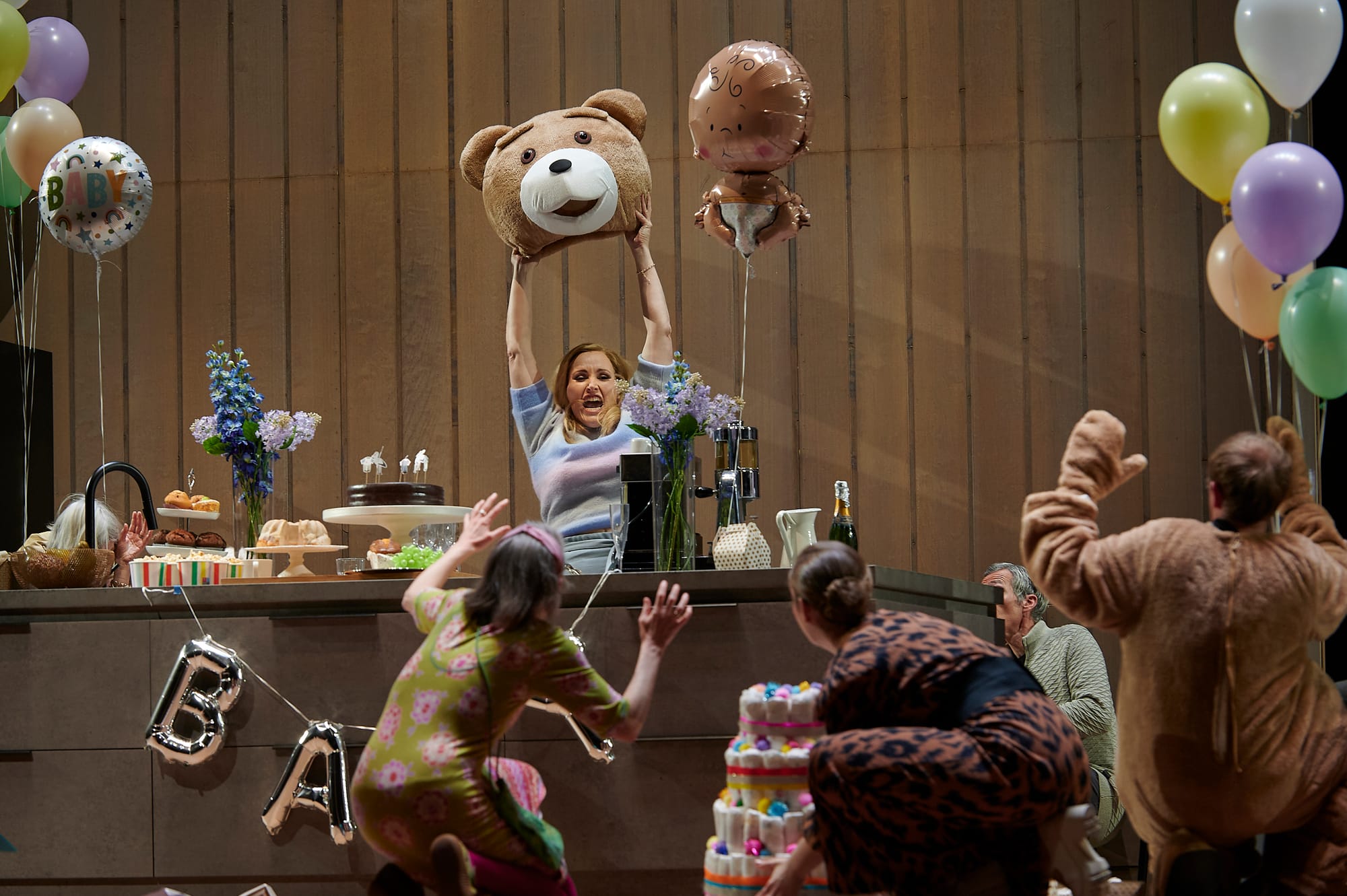
Given this nuanced portrayal of relationships, I found it amusing to read reviews framing Kratzer’s vision as a nihilistic rejection of traditional (i.e. heteronormative) romance. In reality, the production does not depict the downfall of romantic love or conventional partnership but instead expands our understanding of what those concepts can be. Rather than upholding a single model of family or partnership, it affirms that happiness comes in many forms—whether through biological or IVF parenthood, adoption, conscious childlessness, or even separation. Every choice is valid, as long as it serves the well-being of those involved.
Finally, the production also introduces a class component into the dynamic between both couples. Beyond the set design, which visually contrasts their living arrangements, clothing is used to underscore the socioeconomic gap—particularly between the women. The Kaiserin and mother Amme have access to an effortlessly chic wardrobe, changing outfits throughout the plot, while the Färberin’s working-class background is emphasized through her simple clothes and apron. Barak and his wife run a laundromat, whereas the Kaiser appears to hold a white-collar office job, and Keikobad gives the impression of a retired bureaucrat from the old Bonner Republik, wielding both social and cultural capital: at the end, his gift to his daughter is a score of DIE FRAU OHNE SCHATTEN. Ultimately, Kratzer leaves no doubt that access to reproductive choices is inherently shaped by socioeconomic privilege.
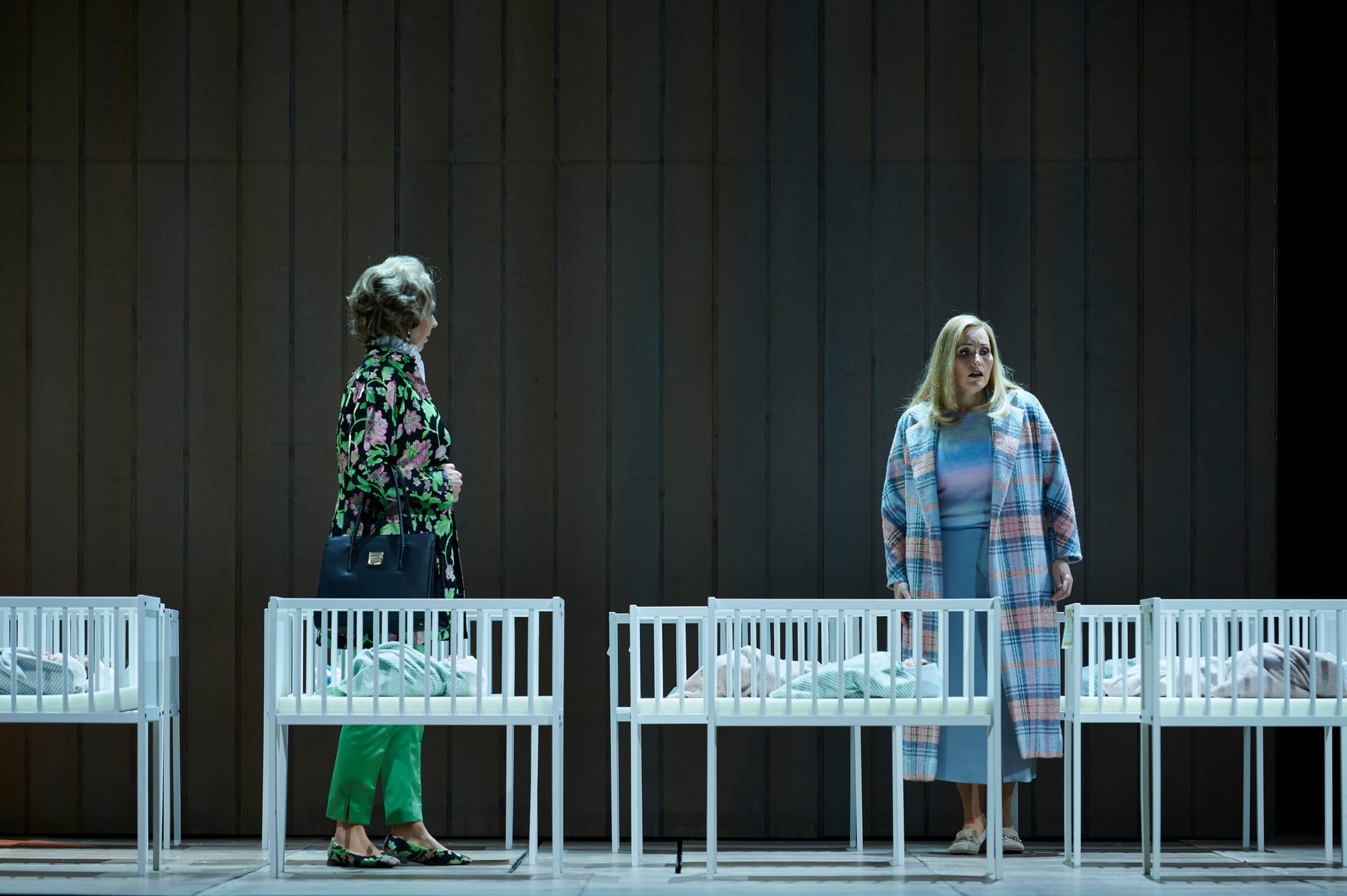
Beyond its thematic richness, this production also deepened my connection to the opera’s score in a way I hadn’t expected. I had seen FROSCH at Staatsoper Berlin a few months prior in a more traditional, dreamlike staging, yet the music hadn’t resonated with me in the same way. After experiencing Kratzer’s interpretation, I found myself listening to the opera on repeat, each note now inseparable from the striking images and emotions it evoked.
DIE FRAU OHNE SCHATTEN is often considered one of the more challenging operas in the repertoire, both in its storytelling and its dense, intricate music. Yet Kratzer’s production proves that, when staged with clarity and purpose, it can feel startlingly relevant. By stripping away the fairy tale, he reveals something far more human: the complexities of relationships, the weight of expectation, and the courage it takes to carve one’s own path. And ultimately, amid the tension, chaos, and resolution, the triumphant quartet finale confirms: “Menschlich ist dieser Klang!”
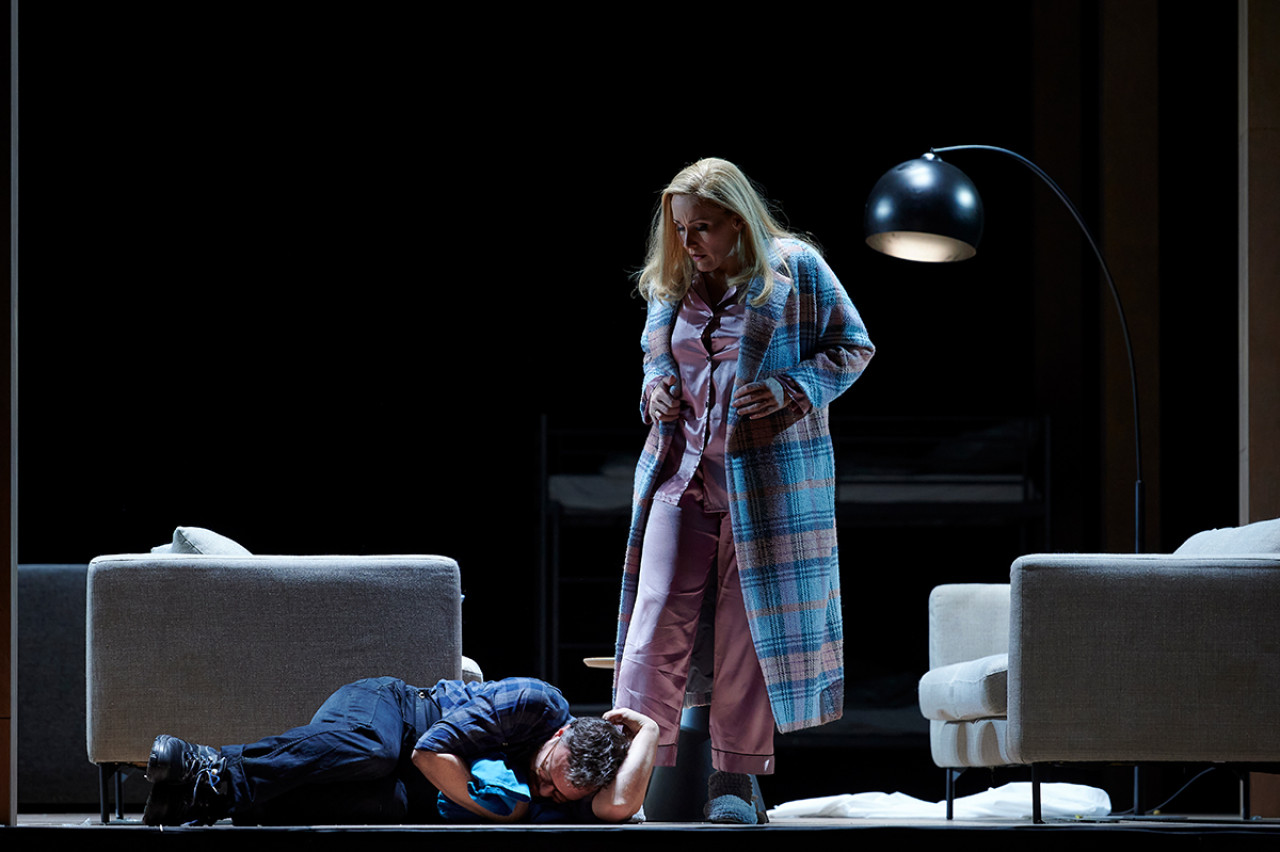
Cast
Musical direction Sir Donald Runnicles
Production Tobias Kratzer
Stage, Costume Rainer Sellmaier
Light Olaf Winter
Video Manuel Braun, Jonas Dahl, Janic Bebi
Dramaturgy Jörg Königsdorf
Children's choir Christian Lindhorst, Kinderchor der Deutschen Oper Berlin
Chorus director Jeremy Bines
The Emperor Clay Hilley, David Butt Philip
The Empress Daniela Köhler
The Nurse Marina Prudenskaya
Spirit Messenger Patrick Guetti
The Guardian of the Temple's Swell Hye-Young Moon
Shape of a Young Man Chance Jonas-O'Toole
The Voice of the Falcon Nina Solodovnikova
A Voice from above Stephanie Wake-Edwards
Barak, the Dyer Jordan Shanahan
The Dyer's Wife Catherine Foster, Lise Lindström
The One-Eyed Philipp Jekal
The One-Armed Dominic Barberi
The Crookbacked Thomas Cilluffo
1st Maidservant Hye-Young Moon
2nd Maidservant Alexandra Oomens
3rd Maidservant Arianna Manganello
Children's voices / Voices of an unborn Hye-Young Moon, Lilit Davtyan, Arianna Manganello, Martina Baroni, Stephanie Wake-Edwards, Alexandra Oomens
Voices of the guards Philipp Jekal, Kyle Miller, Geon Kim
Keikobad Harald Heinz
Kinderchor der Deutschen Oper Berlin
Chor der Deutschen Oper Berlin
Orchester der Deutschen Oper Berlin
